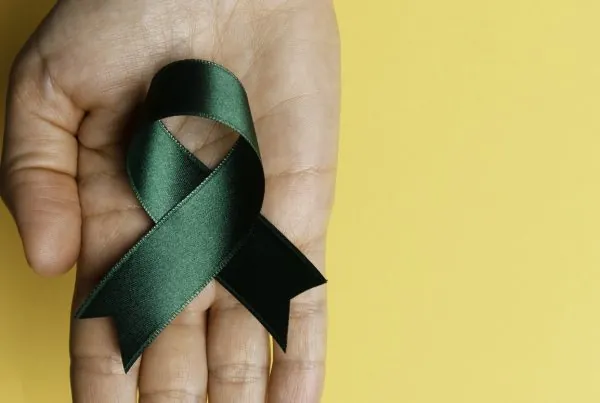We’ve heard the jokes and the comparisons before – teenagers are like little aliens, their moods change on a whim, their logic is incomprehensible, they’re incredibly difficult to deal with, and so on. While it’s true that most adults won’t remember what it’s like to think like teens, most teenage behavior still follows some sort of logic – even when it’s purely instinctual or based on very short-term benefits. But what if becomes more than that? What about the red flags in teenage behavior that nobody told you about, you know, the ones that could create a mental health condition later on?
Being a teen means transitioning from childhood into fully matured adulthood – a process that begins with the onset of puberty but lasts well into a person’s early 20s or even later. With that process come a lot of bumps and challenges. Differentiating between these and real mental health issues – which are becoming increasingly common for teens – can be difficult.
Outside of being boneheaded or self-centered, teens will often struggle with emotional maturity, consistency, and long-term planning. Sometimes, “normal” teen behavior can be conflated with a serious behavioral issue, and in other cases, it is a precursor to a serious behavioral or mental health problem.
Even if your teen infuriates you, there’s a line to draw between annoying or troublesome teen behavior and genuine mental health issues. Learning to recognize those is important, whether as a parent, friend, or close relative.
What is Normal Teenage Behavior?
Defining normal behavior is difficult. There’s the societal norm, then there’s the researched average, and the matter of what feels normal from an individual, anecdotal, or cultural perspective.
Most people can agree on a few general things about teens – such as their shortsightedness or lack of emotional maturity – but there are case-by-case differences on where normal ends and where red flags in teenage behavior may begin. There’s no real way to “treat” a teen’s sexual drive, their will towards rebellion, or their curiosity for the taboo.
For example, our laws make it illegal for kids to get drunk or engage in sexual intercourse before a certain age.
Yet despite these laws, we know that the average drinking age in the US (i.e., age of first drink) is 13-14 and that half of the population has their first sexual encounter between the ages of 16 and 20. Teens do things they shouldn’t do all the time, and we need to intervene on a case-by-case basis. But that doesn’t mean we pathologize every teen’s mistakes.
In other words, we just need to draw a line between normal individual expression and signs of pathology. In the case of the latter, your teen might be struggling with something they can’t deal with on their own, and getting help as soon as possible gives them the best chance of fighting it.
It’s the difference between trying out a beer and becoming a heavy drinker by age 17. It’s the difference between trespassing for a “prank” and routinely engaging in dangerous and illegal activities. And it’s the difference between having a teen’s typical short temper and becoming violent towards others on multiple occasions.
Important Red Flags in Teenage Behavior to Spot
Let’s start with the red flags. These are signs of a serious problem. In other words, if your teen is exhibiting one or more of these red flags, you should consider speaking with a professional and talking to your teen about counseling or therapy. These red flags include the following:
- Heavy drinking and other signs of repeated drug use.
- Knowingly engaging in illegal activities, including speeding or vandalism.
- Becoming violent towards other teens or people on multiple occasions.
- Often referencing death and talking about death, especially what it would be like if they died.
- Frequent signs of physical injury and hiding/lying about cuts and bruises.
- Burns and other signs of self-harm.
- Suicide attempts.
Red flags are meant to highlight problems that most teens don’t have. While a large number of teens have had a beer or tried marijuana, most teens are not habitual users of “hard drugs” or struggling with addiction. Most teens aren’t engaged in routine illegal activities, whether it’s vandalism or theft. Most teens aren’t routinely assaulting each other or struggling with suicidal thoughts.
These are serious behavioral issues that warrant a professional opinion. There’s no point trying to diagnose your teen’s behavior yourself – it might look like addiction, but it might be a combination of drug use with a mediating mental health condition, like social anxiety. It might look like depression, but it might, in fact, be a bipolar disorder, which may require a different treatment plan.
If you’ve observed certain red flags in your teen, then seeking professional help is important.
Other Important Signs
However, you don’t need to wait for a teen to show red flags to be concerned for your teen’s mental or physical well-being.
Some of the behaviors listed below might indicate a mental health problem or personal issue, but they may also indicate that your teen needs someone to talk to or that they are finding themselves engaged in unhealthy coping mechanisms for their schoolwork or personal life. These behaviors include:
- Illicit drug use.
- Losing interest in old hobbies.
- Rapid weight loss (or rapid weight gain) at an unhealthy scale.
- Overexercising (i.e., to the point of repeated injury and/or hospitalization).
- Social isolation (withdrawing from others).
- Spending inordinate amounts of time online (never going outside or logging off).
- Sudden and severe mood swings.
- Struggling to enjoy things and being gloomy most of the time.
- Having a very quick temper and becoming easily frustrated at minor things.
Talk About It and Get Help
Some people worry about pathologizing normal instances of negative behavior – for example, it’s normal to act out after a messy breakup or feel terrible after the loss of a loved one. Sometimes, we do things that aren’t in our best interest, and that goes for doubly for teens. We all cope in our own ways, and it isn’t always clean.
But the concern is still valid, even when there’s a “good reason” your teen might be acting a certain way. They may “snap out of it,” or it might start them down a seriously dark road as their symptoms get worse. If these behaviors apply to your loved one, keep an eye on them, and see if things get better. If they don’t – there’s still plenty of time to talk to them about getting real help.
Mental health issues are difficult to deal with, and many of them have their onset in the late teen years. Understanding why your teen is acting the way they are is important – but oftentimes, they might not even have a reason. Things like depression and anxiety can and often do develop without good cause, and their symptoms come and go without a specific trigger. If you’re concerned for yourself or your loved one, be sure to talk to a professional. At Visions Treatment Centers, we are here to help.








